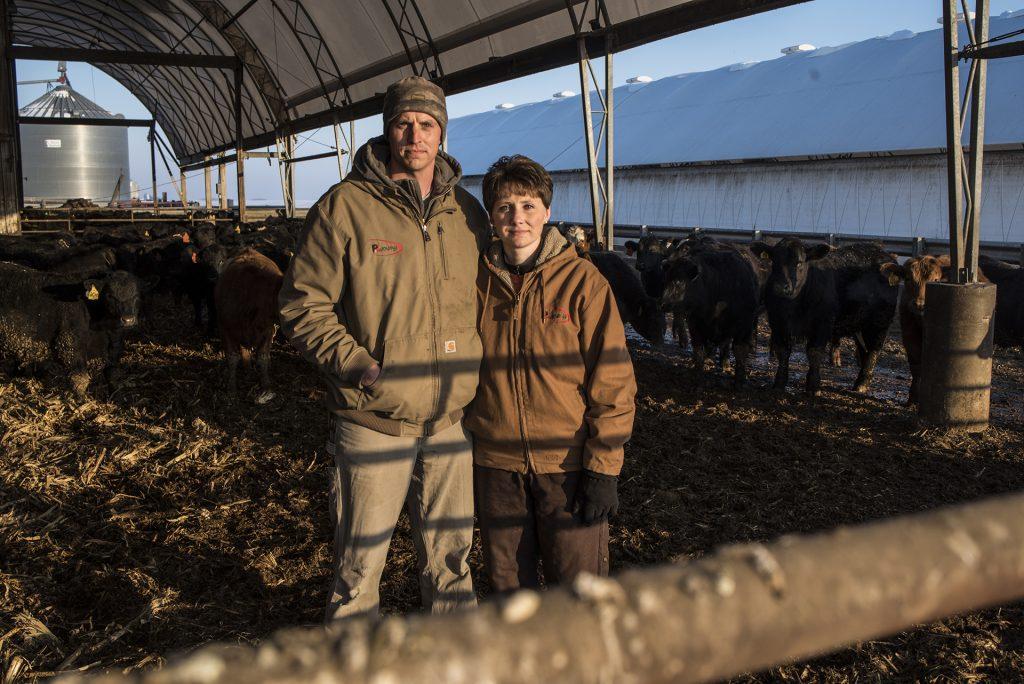The decision student leaders on the Univerity of Iowa’s campus made to promote Meatless Mondays in the dining halls has received a large response from farming and agricultural communities.
Meatless Mondays are encouraged by UISG in order to promote healthy lifestyles and environmental consciousness. The UI dining halls will offer meatless food options on the first Monday of each month this semester.
The “other half of the story,” Aaron Putze, the director of communications for the Iowa Soybean Association, said is that farmers are working hard to decrease their carbon footprints.
Laura Blomme, who owns a family farm near Ladora, Iowa, said many people underestimate the environmental considerations farmers take.
“Taking care of our environment and the environment around us is priority No. 1,” she said. “As farmers, we have such an important job to do, and that is connecting to our consumers. We’ve got a lot of work to do in making sure we’re transparent and talking about what we’re doing out here.”
RELATED: UI holds first Meatless Monday at dining halls
According to a 2015 report from the Environmental Protection Agency, agricultural emissions make up 9 percent of the U.S. greenhouse-gas emissions. The agricultural sector contains crop and livestock production. However, agricultural emissions have risen 8 percent since 1990.
As for Iowa’s greenhouse-gas emissions, 31 percent comes from agriculture. Putze attributes this to its being the dominant industry in Iowa.
“Around 86 percent of our land area is devoted to agriculture, the highest percentage of any state,” Putze said. “We also rank nationally in corn, pork, and egg production, No. 2 in soybean production, and top 10 in beef, turkey, dairy, and poultry production.”
Animal Agriculture Alliance, a nonprofit organization based in Virginia but active in Iowa, is helping to improve farmers’ use of land, water, and energy for the food they produce.
Hannah Thompson-Weeman, the Animal Agriculture Alliance vice president of communications, said she encourages consumer choice.
“Whatever matches your budget, lifestyle, choices, and values, we support that and celebrate it,” Thompson-Weeman said. “But we hope these choices are made on valid and accurate information.”
The Iowa Farm Bureau’s Laurie Johns and Caitlyn Lamm echoed this statement.
“We support all types of farms,” Lamm said. “The Iowa Farm Bureau focuses on renewable energy, food safety, livestock practices, water quality, and conservation.”
Johns and Lamm said farmers are doing numerous things to reduce greenhouse-gas emissions. These include no-till, a method of farming in which the soil is left as-is after harvest, which increases water flow to plants and holds carbon dioxide in the soil.
Meat production also results in a large amount of manure, which decomposes and emits methane — a greenhouse gas more potent than carbon dioxide. Johns said sustainable farmers are working on this aspect, too.
“Farmers are working with veterinarians to get right feed rations and nutrients to the animals,” Johns said. “Therefore, the animals will have an easier time digesting the food, which helps reduce the methane animals produce.”



